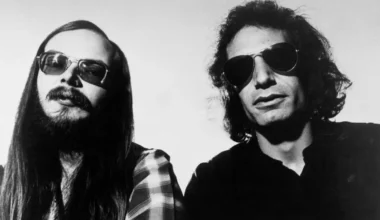The Rolling Stones or The Beatles? It’s the ultimate conundrum in classic rock. That feels like having to choose between the two musical forefathers or two important pillars of national cultural pride. Especially for British fans. The groups are remarkably similar in many aspects, including their lasting appeal, impact, and level of experimentation. For Keith Richards, there is one key element that separates them all, though.
The disagreement between the Beatles and Stones is comparable to that between Oasis and Blur. The Beatles, who all hail from working-class northern backgrounds and sing about their surroundings while demonstrating that great things can come from modest beginnings, are considered Liverpool’s favourite sons. Conversely, The Stones are realistically pretty posh and from the South. With an abundance of time, money, and resources at their disposal, they made their teeth in the London scene. Their musical goals were, nevertheless, more widely focused since they took more inspiration from American blues musicians and less from the sound of the UK. In addition to drawing a line based on taste, the 1960s music fan base was sharply split into two camps based on factors such as geography, class, and style.
However, Keith Richards saw only one thing as indicating the boundary: the music. He didn’t compare the two groups despite the fact that they were emerging at the same time because he believed that their fundamental differences separated them.
Richards said, “Everyone in The Beatles could sing,” in reference to Louder Sound. The fact remains the same, even though one could argue that Ringo Starr isn’t much of a singer. Following the band’s breakup, each of the four members pursued solo careers. They assumed frontman roles with original music and distinct artistic identities. The guitarist for the Stones believes that this is the main distinction between them because it isn’t feasible for many members of their band.
We were more of a band playing music. “We only had one frontman,” asserted Richards. It is accurate. Mick Jagger has always been the band’s leader, with the other members of the group revolving around him like a well-oiled traditional lineup of drummers, bassists, and guitarists. The band’s growth has always depended on their ability to function as a cohesive unit. The musicians evolved and changed along with the songs’ styles. Each of them worked in their own musical niche but always supporting the song. The band has been spared the arguments that the Beatles experienced over who should play what role or sing what as they alternated between roles based on whose song it was.
Richards appears to be making the case that, in the Stones, the band was the band. Instead of competing for the mic and the spotlight, they all wanted to be the band. They were interested in playing their part as best they could.
But that argument collapses when you realise that Jagger, Richards, and Ronnie Wood all had other endeavours at one point, either solo or with other musicians. One could argue that Richards did have a desire to be a frontman because he went on to become one. But he was all the more pining for his spot in the band after that outing. He remarked, “I gained a lot of knowledge about frontmanship.” “I found Mick’s perspective on things—especially onstage—to be much more appreciated.” He asserted that his experience as a solo performer and with X-Pensive Winos improved his comprehension of his bandmates’ roles. He stated, “It broadened my perspective of what everyone in a band has to do and increased my respect for the frontman.”
That was obviously a lesson that none of the Beatles learned when they all went solo and took on front-man roles. However, Keith Richards believes that this is the primary distinction between the two. One being a band, and the other a vocal ensemble. That didn’t stop them from getting together on a regular basis for a supergroup moment, though.








